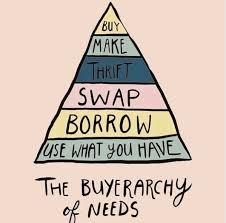To achieve net zero carbon in the UK there needs to be a wholesale shift towards a circular economy.
A "circular economy" in the UK refers to an economic system where materials are kept in use for as long as possible through processes like reuse, repair, refurbishment, and recycling, minimising waste and maximising
the value of resources, essentially aiming to turn waste into a valuable resource that can be reintroduced into
the production cycle instead of being discarded at the end of a product's life.
The following waste reforms are being introduced:
Simpler Recycling:
- The Simpler Recycling Collections reform means that we will all be able to recycle the same materials no matter where you are: home, work or school
- This change to what you can and can’t recycle dependent on your location should reduce confusion and hopefully improve recycling rates throughout the country
- From March 2026 we will provide weekly food waste collections and include all core recycling collections for households - glass, metal, plastic, paper and card, and garden waste.
Extended Producer Responsibility for Packaging
Brands and businesses across the UK will be responsible for the end-of-life cost of the packaging they place on the market, including its collection, treatment and recycling.
They will pay the government a scheme administrator cost and a fee related to how much packaging waste they generate, the materials from which it’s made and how recyclable it is.
They will have to report on the amount of packaging placed on the market and must report on the UK nation in which the packaging is both supplied and discarded.
What can I do? - Embrace a new buyerarchy
Erewash Borough Council provide:
- A subsidised home composting scheme
- Bulky waste – furniture reuse service
There is a growing industry where all kinds of items can be borrowed, bought second hand, shared, swapped or obtained free.
Here are some ideas:
- Clothes & Shoes: Taking better care of our shoes, re-heeling or repairing where possible.
- Buying clothes second hand. Swapping clothes with neighbours for free.
- Baby Supplies: Use cloth nappies & reusable wipes. Use wooden & second-hand toys.
- Buy second hand clothes – they grow so quickly!
- Having a clear out: Donate old clothes and items to charity.
- Buy or sell at your local car boot sale – find unique & interesting presents & home décor
- Right to Repair: Find your local repair café and rescue your devices. Donate old electronics to charity.
- Share your tools: Set up a tool library or a library of things. So often we only need something for a weekend
- Craft Supplies: Donate old paint and craft supplies to schools, hospitals, libraries. Share with others
- Food going to waste? Share with your neighbours & friends or donate to your local food bank
- Too much waste: Go zero waste & watch the rubbish shrink. Find your local zero waste store or eco shop
- Food scraps: Separate out your food waste - Food waste collection is coming – look out for your new caddy. OR, compost it and feed your garden - sign up to our home composting scheme.

